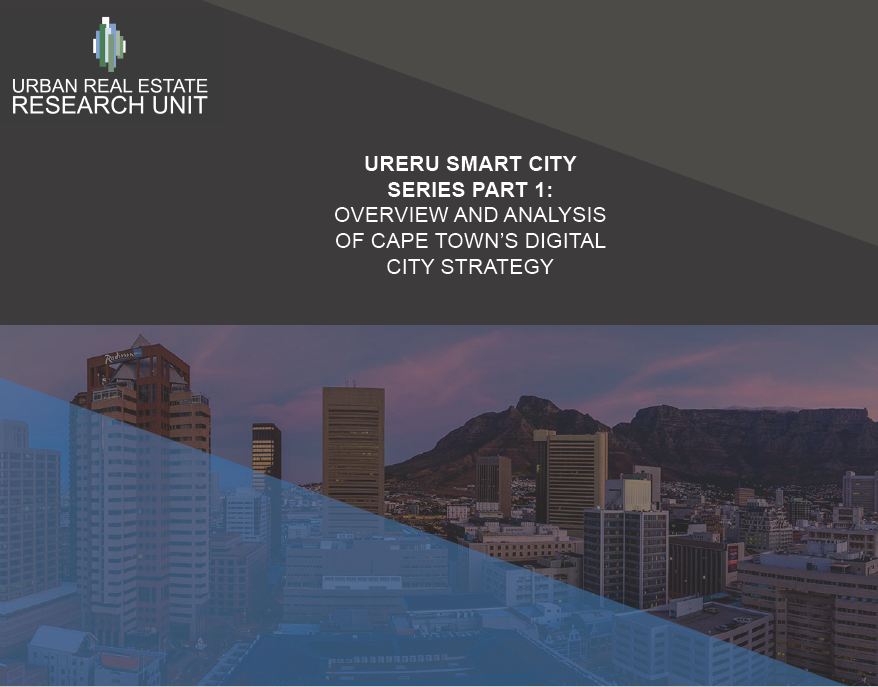URERU Smart City Report Series 1
Overview and Analysis of Cape Town's Digital City Strategy

In today’s urban environment, local governments have to deal with increasingly complex mandates, social inequalities, and economic growth in a context of increasing environmental and economic uncertainty. In Africa, these complexities are exacerbated by rapid urbanisation and the subsequent proliferation of urban poverty. This necessitates more efficient and effective management and governance of urban systems. Given the increased role of ICT and its potential to advance the management and coordination of cities, contribute to their economic success, and improve the quality of life of their residents, many African cities are beginning to explore smart city interventions as a means of overcoming the rising challenges of urban development and sustainability. As such, cities are now having to respond to the opportunities and challenges that arise on the back of an increasingly technological world, which requires a radically different view of how a city needs to operate to accommodate the engagement between technology, citizens, institutions, and the built environment.
This is part of a series that is structured into four reports:
- Report 1: Critical Analysis of Cape Town’s Digital City Strategy;
- Report 2: The Current State and Characteristics of Cape Town’s Smart City Implementation;
- Report 3: Identifying the Opportunities and Challenges that Exist for Cape Town as it Embarks on its Smart City Journey; and
- Report 4: What it Means to be ‘Smart’ in Africa and the Way Forward for Cape Town’s Smart City Agenda.
This first report outlines the key elements of the City of Cape Town's (CoCT’s) ‘Digital City Strategy’ and provides some critical analysis of this strategy. It is important to note that the Digital City Strategy highlights the role that the CoCT intends to play in driving a vision for a Smart City and facilitating this vision, as well as the administrative and service delivery functions it performs as a municipality. Thus, the strategy is not an overarching blueprint for a smart/digital city as this requires the involvement and support of a large variety of different entities with differing interests, perceptions, and skills. Visions of a smart city as outlined in the terminology section won’t be achieved through the City alone.
Abstract based directly on source.


Comments